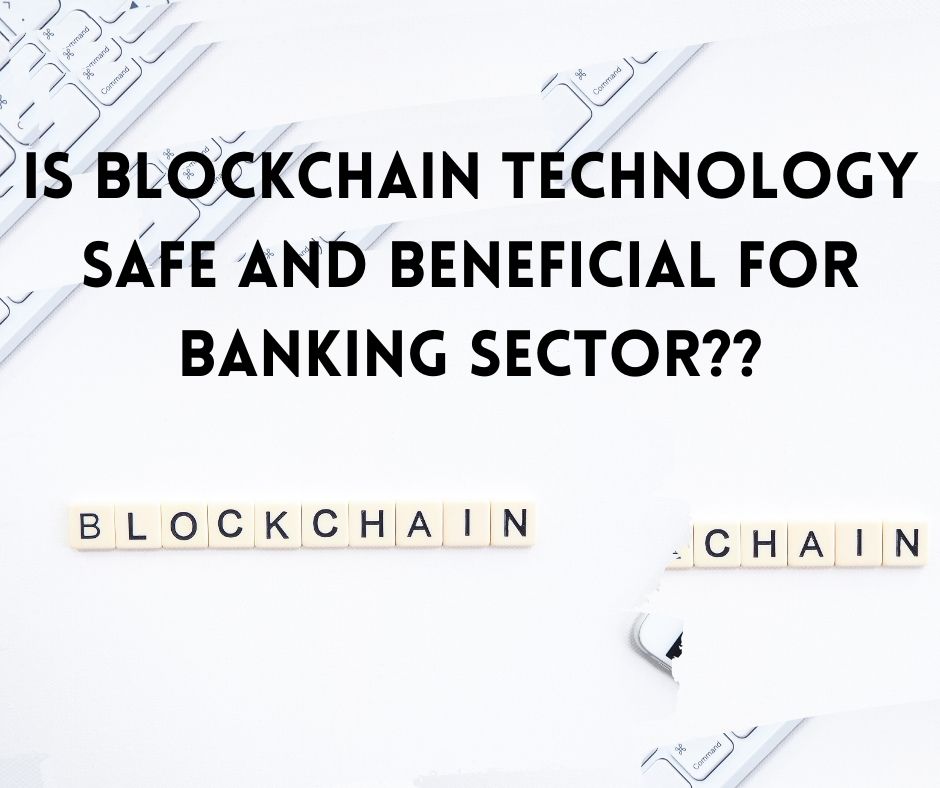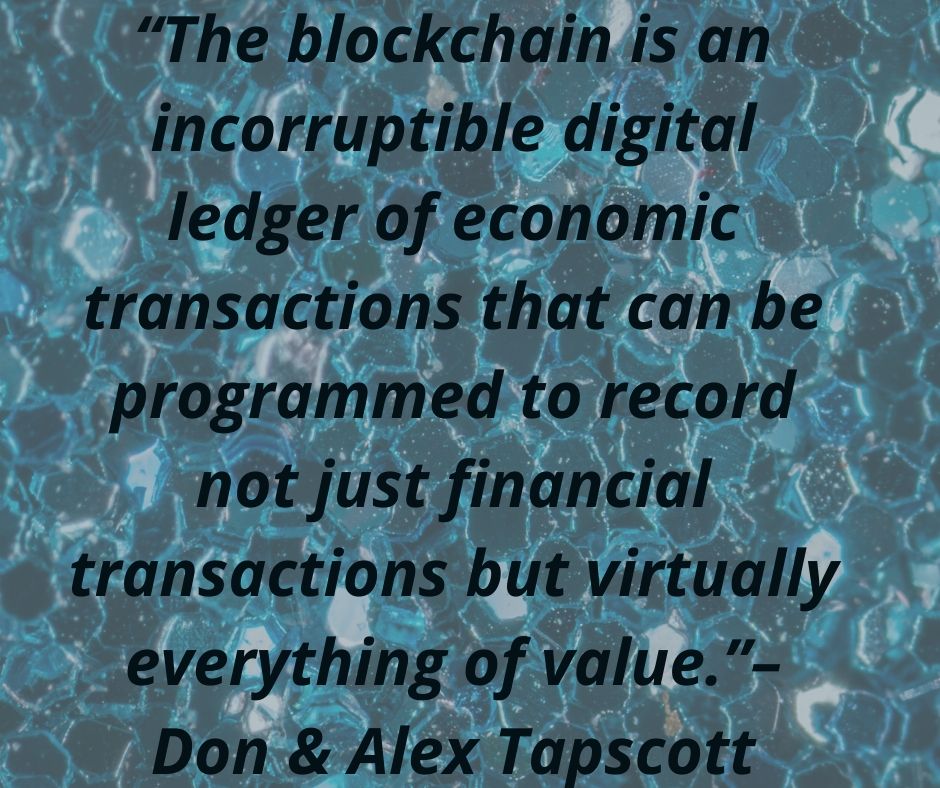Is Blockchain Technology Safe and Beneficial for Banking Sector??
- 15 July 2020 | 1107 Views | By Mint2Save

The bank, recognized as a source to investment is ruled by over associated risks and compels highly recommended security. In order to get it’s drawback lowered, banks need to adopt a leading technology via which lenders distributors investors can safeguard their interests and thereby opting for large investment deals. That technology is blockchain.
What is Blockchain in the banking sector?
To simply say, blockchain is a way of storing and transmitting digital assets (these might be money, medical records, code or anything) in a secure, transparent and decentralized manner. It can be seen as an electronic ledger or chain of records or “blocks” that is open for everyone and not controlled by a single authority. Even though a single or a group of members can control a transaction, it can only be updated only upon verification of all the members thus making it extremely difficult to manipulate.
This was first developed as a means of implementing bitcoin. But many people have identified its potential benefits in many areas and started researching the application of them in their areas.
How can banks benefit from Blockchain?
Although blockchain technology may be disruptive for banking, if used correctly, this new technology can also be used in a way that is beneficial to banks. Blockchain Technology is a tool for success and is operated in order to eradicate the hazard or risk of fraud in all banking sectors similarly followed by the trading platform.
Also, Blockchain deals with cases such as operative risk and managerial costs functioning as transparent and unchangeable. Blockchain offers traceability and the permanent historic record certifying each asset and commodity of value traded could contribute confirmation and realism via the supply chain. Let us see in detail some of the ways in which Blockchain is being used to revolutionize the workings of banks:
How does Blockchain work in banking?
In this world where 45% of the financial intermediaries including stock exchanges and money transfer services are prone to cyber attacks, one needs to look for a secure way. Chris Mager of BNY Mellon Treasury Services acknowledged that “one of the main challenges facing the banking industry today is the growth of fraud and cyber-attacks.”
Bank ledgers are developed within a centralized database and are more vulnerable for its hackers and cyber-attacks as the data is fixed in one place, protected behind outdated legacy IT systems. Hackers and cyber-attackers are familiar with the development of digital technology. If the hacker is able to get access to the one system, they can potentially get access to the whole network.
Chris Huls of Rabobank characterized Blockchain as “A ledger or database that can store all types of information or value exchange that is publicly available for all participants in a group where they all see exactly the same data.”
The miners examine the blockchain during its transaction, with all data being open and publicly available, As the data is available publicly, each fraction of data is analyzed as well as verified during the transaction. The historical record of all proofs and observation activities is mostly maintained by Blockchain ledger. Brutal ventures commenced to alter the data fits the role of the data, adding other hacks to be noticeable.
For example, this record could be employed to contribute an indication which bank conducted in relation to the placed ordinances and controllers ask for its clarification. It basically recognizes the entities striving to develop deceitful records. The requirements of data protection regulation, the data is fortunately analyzed by the banks to get out exceptions acknowledging a way towards illegal workout. Acting as a boon over the modern banking and payment strategies, most vulnerable for fraud and hacking errors.
Which banks are using Blockchain technology?
On 30 December 2015 Nasdaq declared openly that he formulated his first share trade using Blockchain technology.
Also states that by employing Blockchain technology, unions diminishes risk and managerial burden by maintaining time and fortune.
What is the importance of Blockchain?
Know Your Customer
Identification of customers is very important for the banking sector otherwise, the lenders will quickly lose their trust. Banking regulators always hold banks responsible for verifying customers so that they are criminals. If they fail in this process, banks are highly penalized.
Read more: Blockchain in Banking
KYC helps to prevent or at least reduce activities like money laundering and terrorism as they include robust processes of verification. Chris Huls of Rabobank formulated that “KYC statements can be stored on the Blockchain.” As bank possesses KYC’d an original customer can then put that statement, comprising an overview of the KYC reports, on Blockchain that employed by additional banks and other accredited organizations likewise insurers, car rental firms, loan providers, etc. without the necessity to implore the customer to commence KYC again.
The unions will recognize the customer’s ID reports are analyzed and verified so they will not execute their own KYC checks, resulting in deducting their managerial limitations and expenses. The data on Blockchain is irreversible, lending truth lowered down the risk of recurrence error.
Customers can supply KYC documents for one time and not reveal to any third party as the unions barely trust the Blockchain verification.
Blockchain lessens the number of budgetary resources assigned for employee training, 30% headcount rebate amounting to $420 million. Across-the-board operational cost savings are calculated to be roughly $2.5 billion dollars. AML liabilities will also be lessened by the quantity between $0.5 to $2 billion dollars.
Trading Platforms
The Blockchain technology proposes a new forum to exchange assets without centralized trusts and not the risk of double-spending.
The Blockchain benefits the distributed and supportable trust. As a non-banking example, Everledger, Durable ledger for diamond certification, Everledger has accepted the use of Bitcoin by empowering transparency for all parties, undertaking to stave off diamond fraud.
Blockchain offers the proficiency to empower a safe transfer of value and delivery of a solution to the trade finance problem of endorsement. In order to trade transactions Blockchain technology is also strengthening data privacy between counterparties where tokenization, in the form of cryptography, is employed to safeguard the trade data with parties authorized a way to confirm evidence with the security key.
Improved payments
Blockchain would help in a considerable increase in the speed of payments as it eliminates the need for any intermediaries in the payment processing also providing high security for it.
Blockchain will also be beneficial for its functional efficiencies and cost savings ideas. Besides improving the speed of money transfers, blockchain also assist banks to regulate 24 hours a day.
With this, many central banks across the world are exploring the possibilities and advantages of shifting some of their parts of the payment system into the blockchain. Some are even thinking of launching their own digital currencies!
While central banks are exploring these, many commercial banks are tired of the wait and started their own projects.
Blockchain can make payments globally, with perfect and quick execution, detailed transparency, fraud examination, and deterrence at a reasonable cost. With Ripple giving a great competition to SWIFT, SWIFT now began experimenting and exploring the blockchain technology to make itself good.
Clearance and settlement:
You might not believe this, but the complex system that records loans and securities weighs a cost of billions of dollars for investment banks. This is because they have to comply with the international standards and gain as well as retain the trust of their customers.
With the implementation of blockchain into this system, banks can reduce a lot of costs associated with the clearing and settlement. In fact, Accenture has given an estimate that banks could save up to $10 billion dollars by using blockchain technology in clearing and settlement!
Implementing smart contracts
Smart contracts — as the name implies, are a “smart” way of having contracts, that is they are some computer programs in which the rules and penalties of contracts are set and are also capable of enforcing them. Though the conception of them has been done decades earlier, it can now be fully implemented through blockchain. With the use of blockchain, it inherits its security and transparency thus the smart contracts are traceable and irreversible and of course, do not require a third-party enforcer.
Across different sectors from lending to legal, banks can now implement complex smart contracts through blockchain. This also reduces a lot of costs for banks as they need not maintain specialized mechanisms to maintain and enforce contracts.
Learn more about BankChain: Bringing Blockchain to Banks
Conclusion:
Blockchain technology, which is an important part of the fourth industrial revolution is changing many things in the world. Banks are no exception to that. While blockchain has many disruptive effects on banking, it can be beneficial for banks as well. They help to decrease the costs and increase the efficiency of many systems including payments particularly cross border ones, KYC, trading platforms, and many more. They also help in the implementation of smart contracts.
But, still the implementation of blockchain in many banks of the world is just a proof of concept. However, it will not be much longer to the time when we will see large scale adoption of this revolutionary technology in the banking sector.










